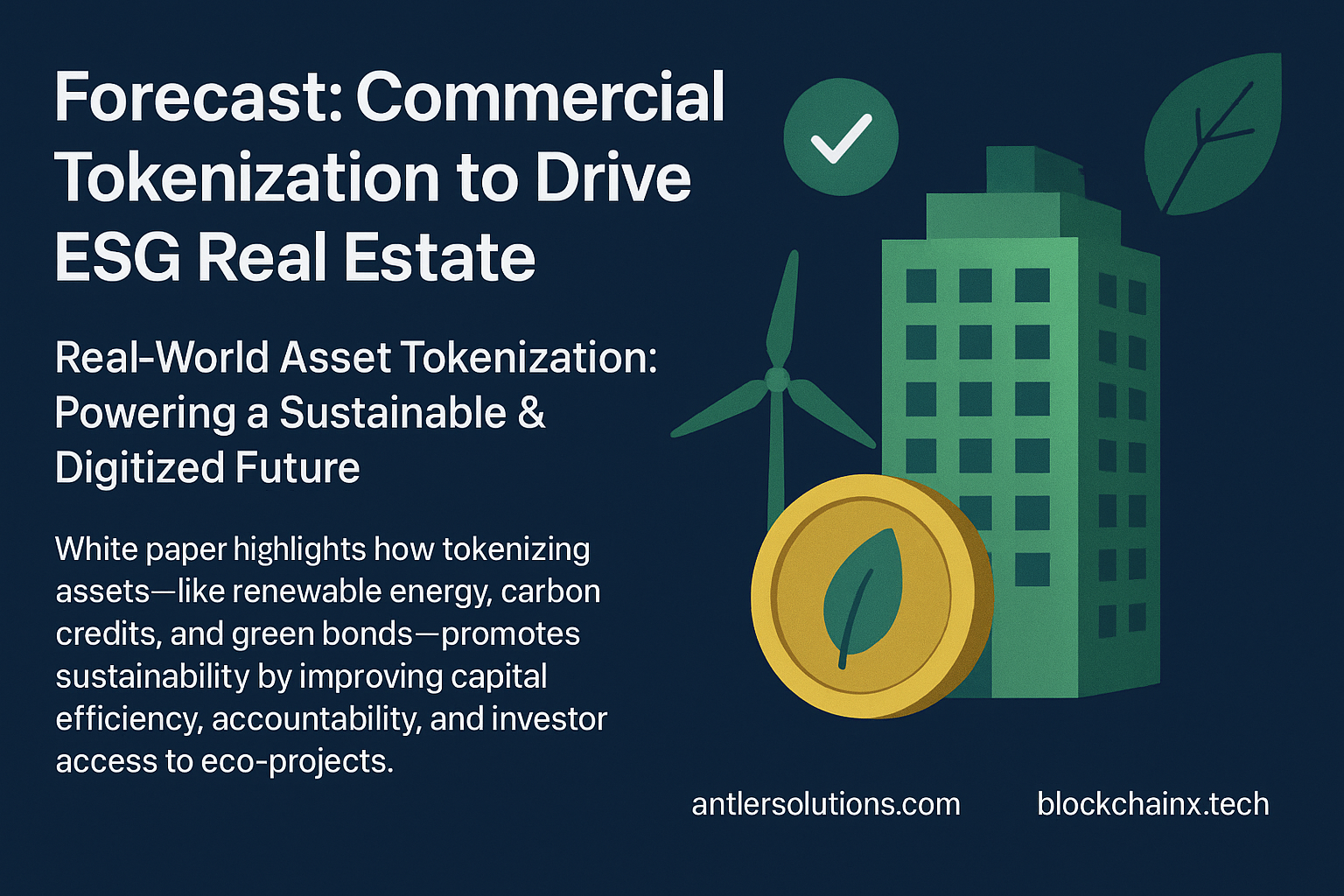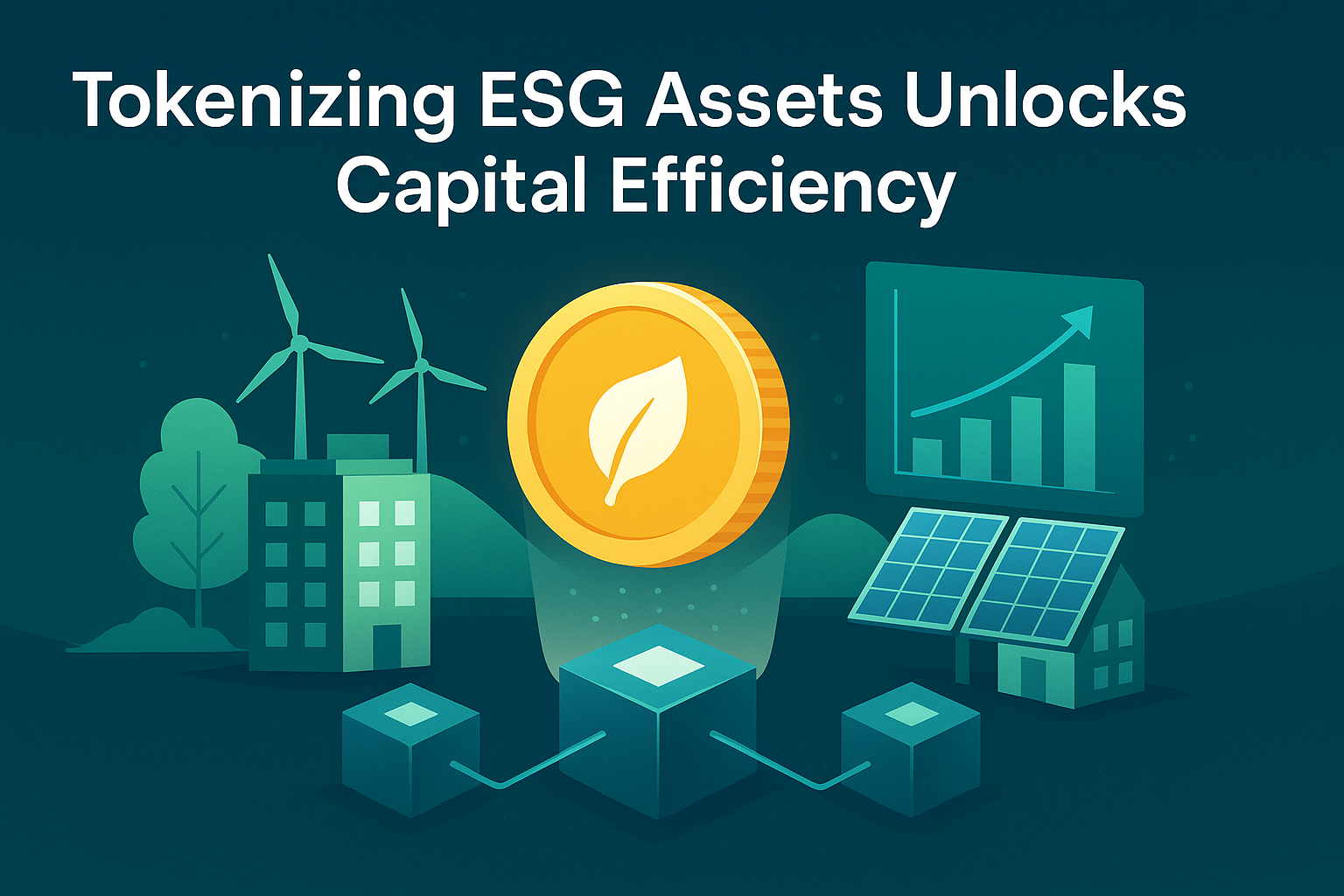The convergence of real estate investment, environmental responsibility, and blockchain technology is reshaping global capital markets. According to a recent white paper, commercial tokenization—the process of representing real-world assets (RWAs) like buildings, energy projects, and green bonds on the blockchain—will be a key driver of ESG (Environmental, Social, and Governance) innovation over the coming years.
What is commercial tokenization?
Tokenization converts physical or financial assets into digital tokens that can be easily traded, fractionally owned, and transparently audited. In real estate, this means everything from office towers to eco-developments can be split into small, blockchain-secured investment units. Investors gain direct access to projects that were once limited to institutional players, while developers benefit from improved liquidity and capital efficiency.
Why ESG matters more than ever
With mounting regulatory pressure and investor demand for sustainability, ESG is no longer a niche investment criterion—it’s becoming central to global finance. By aligning capital flows with climate goals, tokenization supports initiatives such as renewable energy developments, carbon credit markets, and green bond funding. Digital tokens make it easier to track performance metrics, verify environmental claims, and ensure accountability in how funds are used.
Real-world impact
-
Renewable energy financing: Tokenized wind or solar projects enable small investors to fund clean power production while receiving verifiable returns.
-
Carbon credits on-chain: Blockchain-issued credits reduce fraud risk and improve transparency in emissions trading.
-
Green bond access: By tokenizing bonds tied to sustainable infrastructure, issuers reach a broader base of ESG-focused investors.
A sustainable and digitized future
As capital markets become more digital, tokenization is expected to accelerate the flow of funds into eco-projects. This creates a virtuous cycle: sustainability attracts capital, digital transparency builds trust, and more projects come online to meet climate and urban development goals.
The commercial real estate sector—traditionally slow to adopt change—is now poised for a major shift. Tokenization is not just about efficiency or profitability; it’s about reshaping how we fund the spaces we live and work in, making them greener, smarter, and more inclusive.
The forecast is clear: commercial tokenization will not only transform property investment, but also power a more sustainable, accountable, and digitized global economy.




